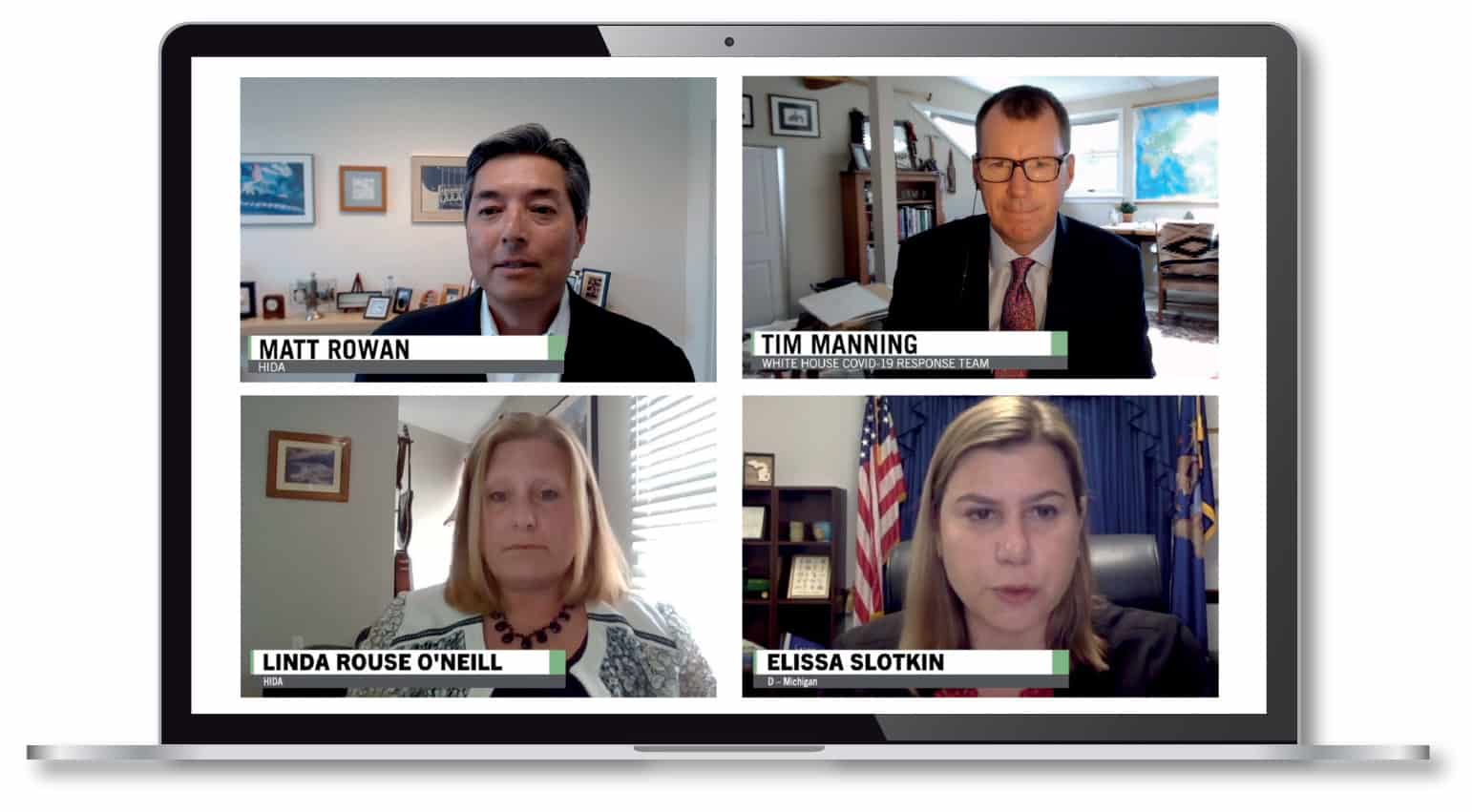Washington Summit Amplifies Importance Of U.S. Preparedness And Response
HIDA’s annual Washington Summit gave supply chain leaders a crucial opportunity to help Congress understand key issues affecting the industry and its care provider customers.
More than 60 HIDA members and their manufacturer partners met with U.S. senators, House members, and staff as part of the summit in June. During more than 80 meetings, HIDA members urged congressional support for the Medical Supplies for Pandemics Act, legislation which will better prepare the U.S. for public health emergencies and strengthen the partnership between the Strategic National Stockpile (SNS) and commercial distributors.
During the Summit, HIDA members heard from Reps. Elissa Slotkin (D-MI) and Richard Hudson (R-NC) about bipartisan long-term pandemic policies. White House Supply Chain Coordinator Tim Manning offered the Administration’s views on public-private partnerships and the SNS. Here are some of their thoughts.
Impactful policy and legislation are more important than ever as the nation navigates through the COVID-19 pandemic.
Nation’s COVID Supply Coordinator Sees Success Through Public-Private Partnerships

Tim Manning
White House
The Biden Administration wants to work with the commercial sector to procure and deliver vaccines, personal protective equipment, and diagnostics across the country, according to the White House National COVID-19 Supply Coordinator.
Speaking in June at HIDA’s Washington Summit, Tim Manning said the Administration’s priority has been getting critical medical products and equipment into the hands of responders and caregivers while ensuring there is adequate supply.
In late December 2020, when Manning was tapped to join the Biden Administration, the devastation of the pandemic was at its height in the U.S. The scale of loss matched the September 11, 2001, terrorist attacks day after day, he noted. Manning, who served eight years as FEMA deputy administrator during the Obama Administration, is encouraged by the progress the nation has made in fighting the spread of COVID-19. He highlighted the 10-fold reduction in cases since mid-January 2021, but noted that the U.S. pandemic isn’t over until the global pandemic is over.
Building public-private partnerships is critical and helps the government take a holistic approach to combating the spread of COVID-19, according to Manning. The government has been reviewing ways to work with distributors and manufacturers to achieve its supply chain objectives.
Manning said the public health emergency has prompted the need to:
- Review government procurement
- Create a new vision for the Strategic National Stockpile (SNS)
- Find more ways to support U.S.-made products
- Consider macro policy needs to support these efforts
The administration plans to help expand the country’s domestic manufacturing base by subsidizing production, making investments in surge capability, and helping maintain production lines that can scale up in a crisis.

Creating Policy Through Lessons Learned From A National Pandemic
Two lawmakers championing ways to better prepare the nation for public health emergencies outlined bipartisan efforts on long-term pandemic policies and what navigating through COVID-19 has taught them.
U.S. Rep. Elissa Slotkin (D-MI)
- U.S. supply chains and the Strategic National Stockpile are matters of national security
- The sources of U.S. supplies are important
- The government should incentivize U.S. manufacturing
- The public and private sectors must collaborate to achieve success
U.S. Rep. Richard Hudson (R-NC)
- Private providers should more easily be able to replenish the SNS
- Using the SNS as a storehouse for everyone isn’t sustainable
- Congress should establish a grant program for states to maintain stockpiles
- Funding should be increased to strengthen supply chain public-private partnerships
“One question manufacturers and distributors should ask themselves: Do you feel confident that you have transparency throughout your supply chain and is your supply chain actually secure?”
— Rep. Elissa Slotkin
This article appears in the September/October 2021 issue of HIDA’s bimonthly member magazine, Healthcare Distribution & Supply Chain™.